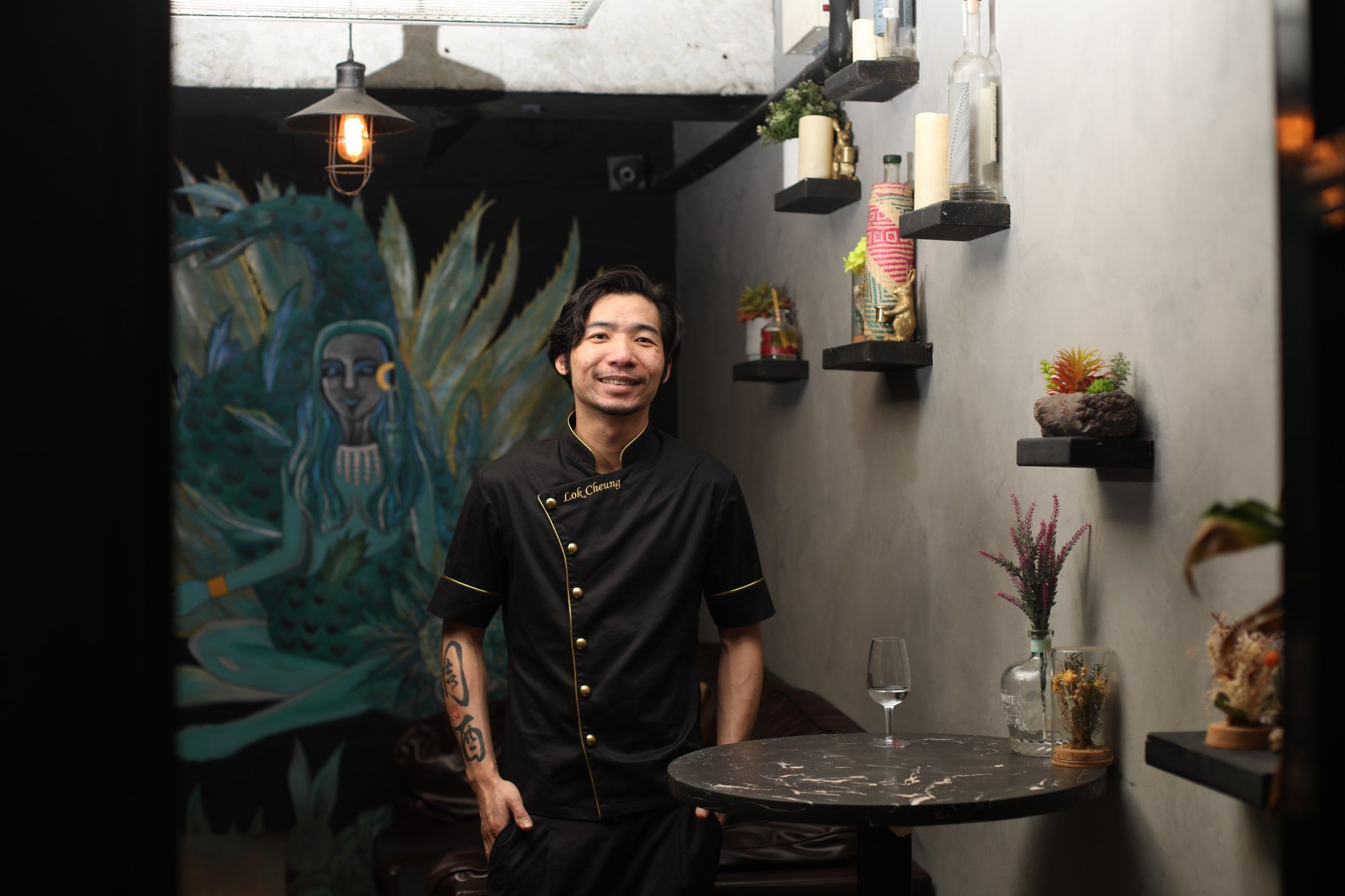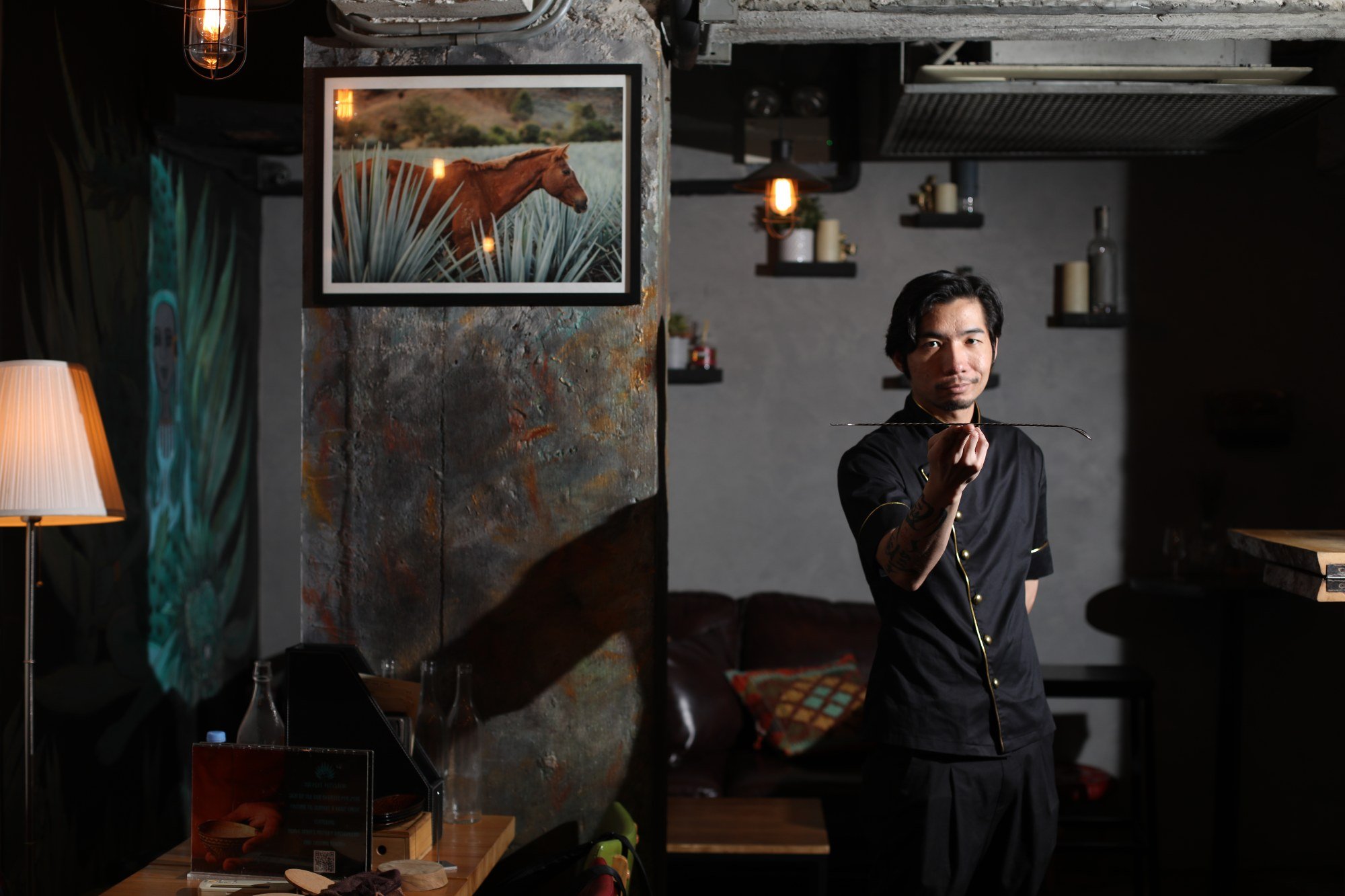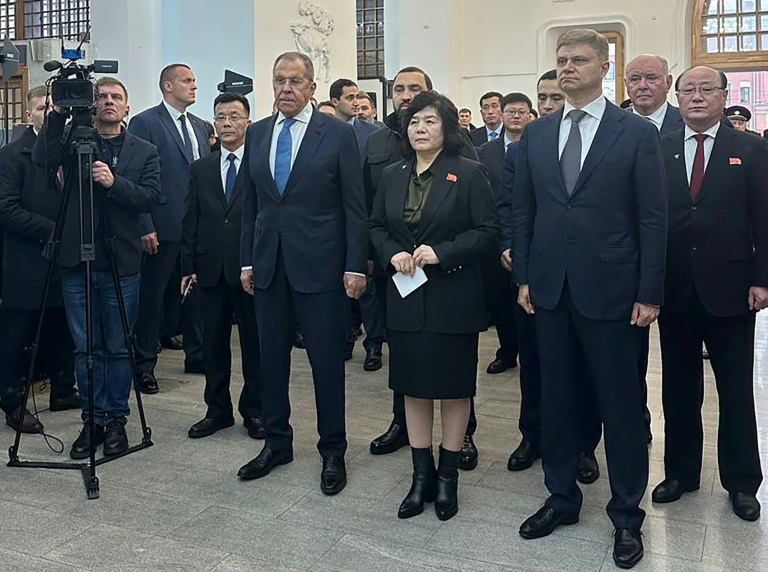Wong says the judges assessed drinks from different angles: “Antonio [Lai] was more on the technical side, Jay [Khan] was more on improving the flavours and I focused more on the presentation. But of course, we had other [criteria] as well.”
Lai explains that his requirements for a masterful cocktail included “a combination of performance, knowledge, style and experience”, while Khan “wanted to see the bartenders making bold decisions and creating something outside of the norm”, with storytelling being another crucial aspect for him.
The competition’s final started with the three remaining contestants – Quinary’s Eartha Sim, The Savory Project’s Cheung Chi-ho, and COA’s Lok Cheung – creating cocktails inspired by “the taste of Hongkongers” and cha chaan teng culture.
The two survivors, Ho and Cheung, went on to design pop-up bars depicting their own vision and philosophy, from which they served a final cocktail to summarise their experience in the competition.
It was Cheung – who has worked as COA’s bar manager since 2021 – who took the title.
“His cocktail was more complex and [he had] more consistent storytelling throughout his whole journey [on the show],” Wong says.
Lai says that Cheung “consistently demonstrated excellence” throughout the competition, with “captivating cocktail presentations which ultimately led to our decision to select him”.
Khan – the co-founder of COA – was no stranger to Cheung’s craft and says he was among the most experienced on the show.
“Watching him win was a proud moment for our entire team. As a colleague, I can say he is a very hard worker,” he says, adding that many of the other participants showed perseverance, determination and a hunger to succeed.
How a drink tastes can be forgotten quickly, but by talking to people, you give them a different and unforgettable experience
Both Wong and Lai singled out one of the six finalists – Christina Limbu of COA and its sister venture The Savory Project – as the contestant whose outstanding performance surprised them the most, while finalist Sim’s inventive use of ingredients and garnishes also made an impression on Wong.
But it was Cheung’s “Bartender’s Bartender” cocktail and presentation in the third round, about the ups and downs he experienced throughout his career, that brought Wong to tears: “I could taste his emotions and passion as a mixologist.”
Fresh off his triumph, Cheung says he first dipped his toes into the food and beverage industry as a server around 2011, but at that point, to him, it was nothing more than “having fun and enjoying a drink or two”.
While he did enrol in an amateur mixologist course before officially becoming a bartender, he believes the best way to learn is through practice and observation.
“It was only when I started working at a cocktail bar a couple of years later that I got into making artisanal drinks and began to enjoy the culture and professionalism that came with it, as well as interacting with customers,” he says.

He worked with Lai for about five years, during which time he took part in several competitions. While things were going well, he also started to feel stagnant and realised he needed to expand his horizons.
“I felt a bit lost,” he says. “I had spent a few years in the bar scene yet couldn’t figure out which direction I wanted to head towards.”
In 2019 he left Hong Kong for London, where he started as a bartender in a five-star hotel. In just his first year he was promoted to take charge of operations for the hotel’s three bars.
He attributes his two years in London to helping him ground and find himself. “I came back with fresh eyes and began to know where I wanted to head.” Upon his return, in 2021, he quickly joined COA.
He says creating new cocktails is fun because you get to innovate and escape your usual mindset, but there’s an even more fulfilling part of the bartending experience.
“Most of a bartender’s day-to-day is customer-facing – that, I think, is the most appealing aspect of the job,” he says.
“How a drink tastes can be forgotten quickly, but by talking to people, you give them a different and unforgettable experience, and that can be more important than making a drink. After all, making a good drink is expected of a professional bartender.”

Cheung decided to take part in Master Mixologist as “it’s a meaningful competition and Hong Kong’s first TV show about the local bar industry”.
“I didn’t expect [to do] much aside from helping more people discover the craft and the local cocktail scene. I tried my best at every round, showed what I wanted to show and said what I wanted to say.”
He admits that with over 12 years behind the bar he was more experienced than most contestants, but he thought that everyone was equally creative with their cocktails.
“I focused more on storytelling and presentation, and thematically I tried to connect everything back to Hong Kong, which was why I took part in this competition in the first place: to promote the local bar industry.”







